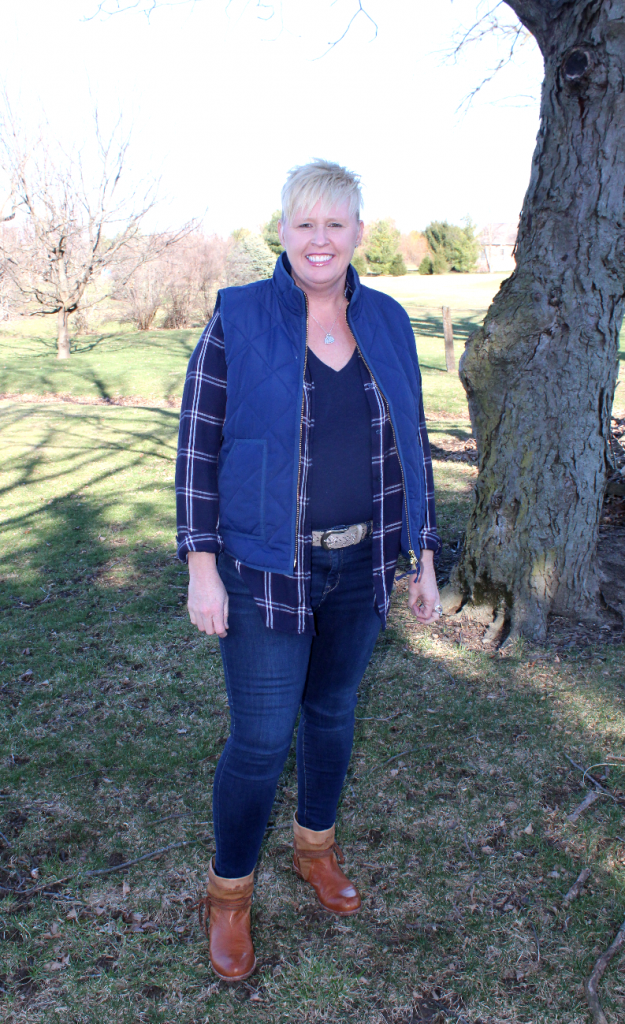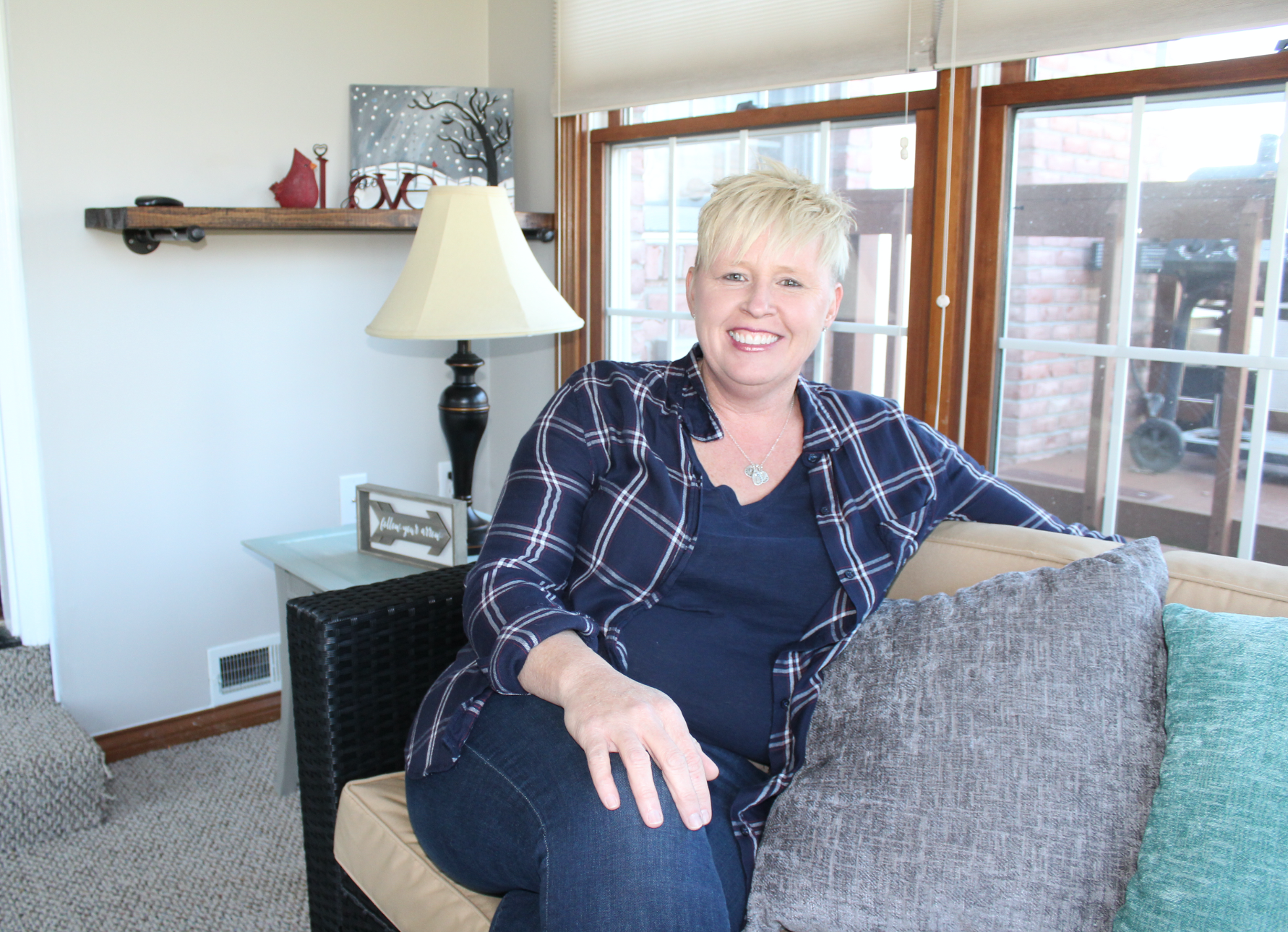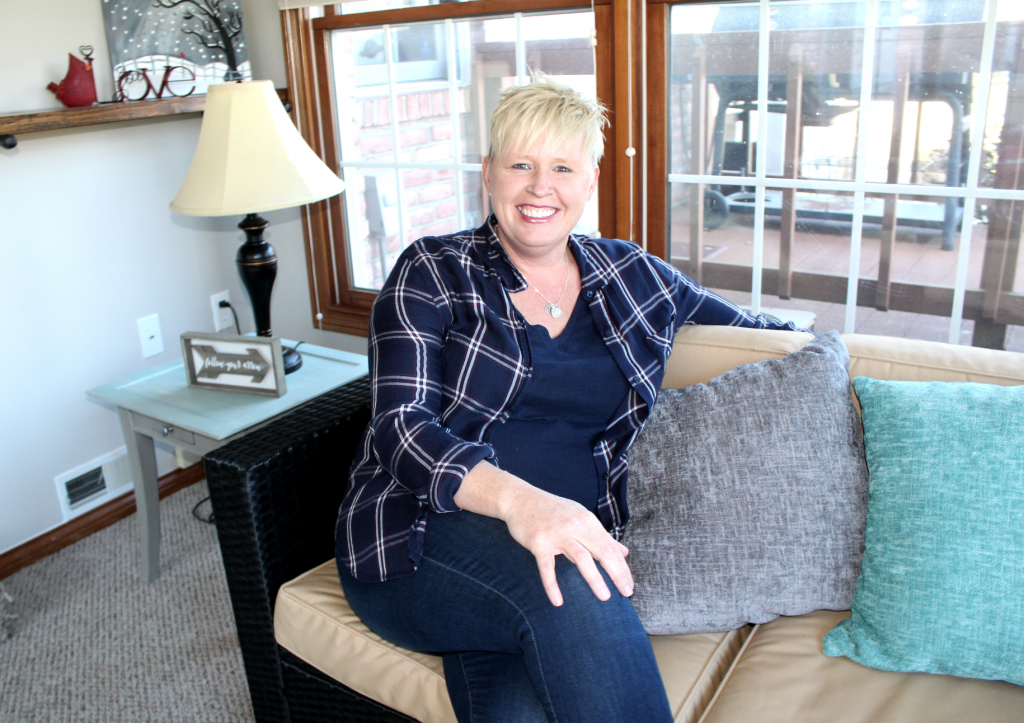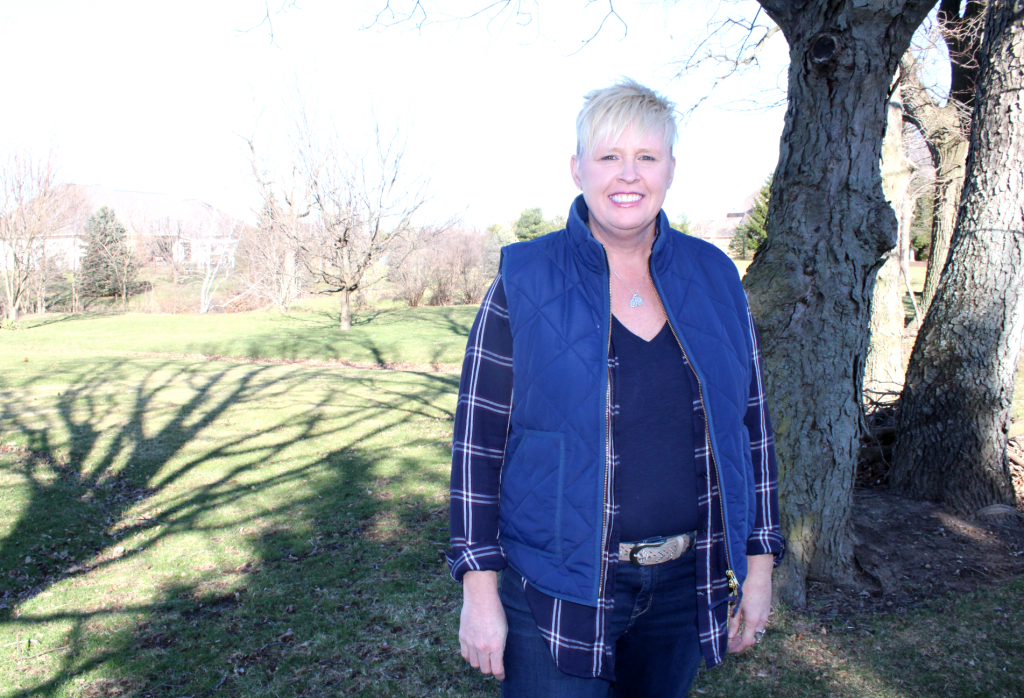Jamie Turner Honors Son’s Legacy by Altruistically Donating a Kidney
Writer / Christy Heitger-Ewing
When Jamie Turner saw her OBGYN on a Wednesday, she listened to her son’s heartbeat. Two days later, however, she stopped feeling movement.
“Nobody can explain the heartbreak of delivering a stillborn,” Turner says. “You walk into the hospital pregnant but walk out with a box and a blanket.”
Up until Dawson’s tragic death in 2010, Turner, a pharmaceutical sales rep, lived a charmed life. A collegiate softball star, she was a good student who never really had a run of bad luck. When Dawson died, her first instinct was to bellow to the universe, “Why me?”
After some time, however, it dawned on her, “Why not me?”
“What makes any one person more special to be immune to tragedy?” she thought.
The day she buried Dawson, Turner stood frozen in the aisle of Walmart, staring mindlessly into space in a grief-soaked haze. Suddenly, a woman shoved Turner’s cart out of the way and shot her a steely glare for blocking the aisle. It took every ounce of strength for Turner not to collapse on the floor in a puddle of tears.
“I wanted to say, ‘Do you even realize what I did today? How can you be so uncaring?’” recalls Turner, who, in that instant, recognized how deeply narcissistic, narrow-minded and impatient some people can be. “We honk in irritation at a traffic signal if the person in front of us doesn’t move the second the light turns green. We roll our eyes when a waitress gets our order wrong.”

Right then and there, Turner vowed to make compassion a priority in her life.
Turner went on to have a third child, Kennedy (prior to Dawson, she had Keegan). When Keegan was 6 and Kennedy was 3, Turner was still searching for a way to honor her son’s memory.
“I was compelled to find a way to let his legacy live on, but I didn’t know how,” Turner says.
One night while lying in bed, she asked God to give her a sign — something that would clearly tell her what she was supposed to do. Three days later, she spotted a billboard with a picture of a girl on it who was the spitting image of her niece. Turner did a double-take and saw that the plea was for a new kidney for this little girl.
When Turner got home, she researched the girl’s plight and found that the name of this girl’s doctor was Turner. Chills shot up Turner’s spine. In addition, the girl’s mother had donated her kidney (which sadly her daughter’s body rejected), and she did so on December 10 — Turner’s birthday. More chills.
“You know how you always ask God for a sign but then when you get it, you’re like, ‘Well, I didn’t mean to go to that extreme,’” says Turner with a chuckle. “I was like, ‘Seriously? Organ donation is what you want me to do?”
Instinctively, Turner picked up the phone, called the number on the billboard, and began answering a litany of screening questions. Two weeks later, she received a call from the National Kidney Registry. They had additional health questions. A week later, she went in for blood work, and after an extensive psychological evaluation, she was cleared to be an altruistic organ donor. Altruistic donation is when the donor gets nothing in return. Because Turner is an altruistic donor, should she ever have an issue with her remaining kidney, she would jump to the top of the recipient list.
Turner started off a six-person chain of donation. The chain has to start with someone who doesn’t need one in return. Then it’s like a blind lottery match for who gets what kidney, based on compatibility.
The morning Turner went in for the surgery (in June 2013), a calming peacefulness washed over her.
“There was no second-guessing or worry. I knew my family was taken care of,” says Turner, noting that the National Kidney Registry put a $1-million-dollar policy on her. “In the big picture, if I died on the table, I didn’t look at it as me leaving my daughters. I’d just be joining my son. It was a no-lose situation for me.”
Though Turner came through the surgery just fine, she did develop a serious infection soon thereafter and had to spend 28 days in the hospital. Recovery required a fecal transplant.
“I joke that I donated a kidney to save someone’s life and someone else donated their poop to save mine,” Turner says.
Going into the operation, Turner had no idea who the recipient of her kidney would be, and that’s what she preferred.
“I didn’t want to pick my donor, nor did I want to know their backstory,” Turner says.
Four months after the surgery, Turner’s recipient, Howard, sent her a heartfelt thank-you card. Since then, he sends a letter ever three to six months to fill her in on how he’s doing. He writes how grateful he is to have been able to walk his daughter down the aisle and to be able to go fly fishing with his grandkids.
“I want you to know that you not only changed my life but my grandchildren’s lives as well,” Howard wrote. “You’ve given me the gift of time that I never would have had with them were it not for your generosity.”
Turner recites the quote, “You’ll never experience true joy until you give something to somebody who cannot repay you.”
“The truth is that my kidney wasn’t a gift from me to Howard. It was a gift from me to God,” Turner says.
And though she’s forbidden from playing contact football, rugby, or ice hockey, for the most part, Turner has no restrictions in living her life. Above all, she’s happy.
“When my feet hit the floor every day, I try to make a difference in someone’s life, even if it’s just in some small way,” Turner says. “Maybe I help a little old lady lift a case of Coke into her car. Maybe I pay for the person in line behind me at Starbucks. It’s about finding good meaning in your life.”
Mostly Turner relishes knowing that she did something good in this world. Her act of love demonstrated true compassion. No doubt Dawson is beaming with pride.







